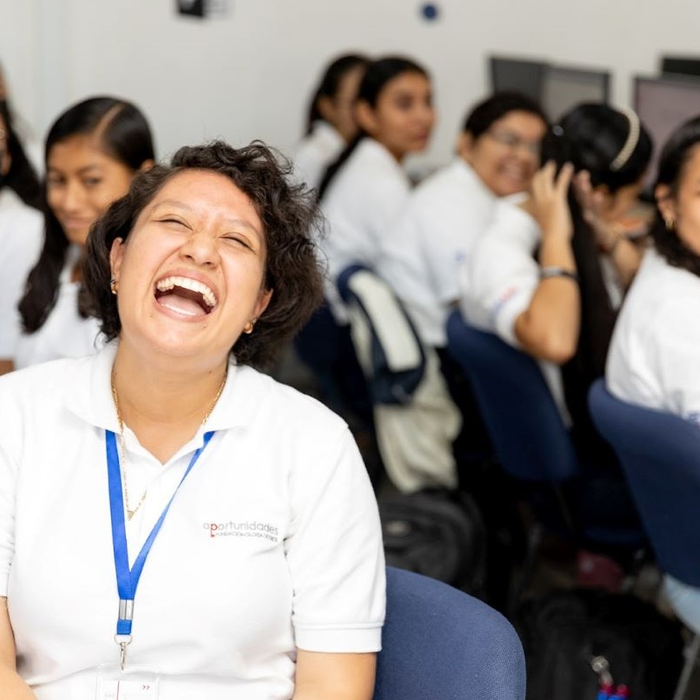New USAID Commitments to Disability Inclusive Education at the 2022 Global Disability Summit
 Photo Credit: Chheng Sambo, RTI International. Students learn Cambodian Sign Language (CSL) using tablets with CSL video stories.
Photo Credit: Chheng Sambo, RTI International. Students learn Cambodian Sign Language (CSL) using tablets with CSL video stories.
At the 2022 Global Disability Summit (GDS), USAID announced new commitments to disability inclusive education, cementing its role as a leader and joining global partners to advocate for education for every learner. Disability inclusive education at USAID encompasses disability inclusion across the entire education continuum, from pre-primary through higher education, including youth workforce development. Announced by USAID Administrator Samantha Power, the Agency’s commitments to disability inclusive education include:
- Advance the knowledge base of what works in disability inclusive education in partnership with organizations of persons with disabilities and strengthen USAID’s use of disability data for education programming;
- Incorporate principles of Universal Design for Learning (UDL) for all learners in all new USAID Education programs;
- Increase USAID initiatives for learners with disabilities in pre-primary education, youth workforce development, higher education, and education finance; and
- Continue to provide USAID staff and partners with the knowledge, skills, and tools to advance and effectively implement disability inclusive education as well as UDL at all levels of the education continuum.
Our commitments “will expand the reach of our development efforts and demonstrate that we’re serious about making global development accessible to all,” said Administrator Power in announcing these and 19 others USAID and the U.S. State Department made across the range of programming.
As part of the commitments, USAID outlined how it will work with partners to incorporate and integrate inclusion into programming and invest in resources to realize its commitments by the next GDS in 2026.
While these are the first such sweeping commitments from USAID, the Agency has been actively working to advance inclusion in educational programming for several years.
In her remarks, Administrator Power highlighted the Agency’s work and, in particular, one of the Center for Education’s strongest disability advocates, Rebecca Rhodes, who passed away last year.
“Rebecca’s efforts show us that when we approach our development goals with inclusion in mind, we often create solutions that can serve communities far beyond the ones we originally intended to reach. As we cherish Rebecca’s legacy, we resolve that when we commit to changing systems so that they help realize the full potential of persons with disabilities, we improve the safety, prosperity, and freedom of all people.”
Administrator Power and USAID staff from across the Agency, including Education staff, joined more than 7,000 participants at the virtual summit. It was the second-annual gathering and sponsored by the International Disability Alliance (IDA), the Government of Norway, and the Government of Ghana.
Learn more about USAID’s work in supporting Disability Inclusive Education and watch this space for updates on how USAID’s Disability Inclusive Education commitments are being met.
LeAnna Marr, Acting Deputy Assistant Administrator at the U.S. Agency for International Development describes how USAID’s education staff, around the world, work toward a disability inclusive future.
Additional Resources:
Related Blog Posts

Embracing Effective Learner-Centered Approaches in Higher Education

One Year in Higher Education, Five Activities to Keep Learning From
